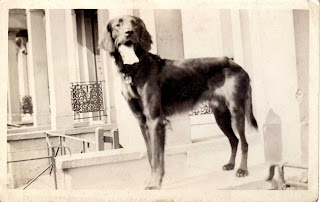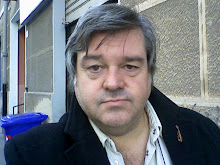When I was at Park Walk in the sixties, things were superficially quite different. Apart from Nigerian Jolomi and Italian Loris, the rest of my classmates were monochrome white. Yet, appearances can deceive. Hardly any of these children's great great great grandparents, let's say, would have lived locally. Before the 1790s the World's End was home to a few farmers and peasants, their livestock and a couple of pubs. Chelsea villagers lived mainly in the streets around the Old Church, most of which were bulldozed to make way for the new Embankment in the 1870s, some of them, such as the photographer James Hedderly, subsequently relocating to the burgeoning World's End. Other Worldsenders may have arrived from newly gentrified parts of East Chelsea but most of them came from the four corners of Britain and Ireland.
A glance at the 1881 census will confirm. Taking five pages at random, numbers 33 to 53 Blantyre Street to be precise, we find that, of the 65 adults listed (obviously most of the children were born locally), only 9 were born in Chelsea; 17 were born in other parts of London, 12 in Devon, 6 in Somerset, 4 in Suffolk, 4 in Ireland, 2 in Sussex and one each in Dorset, Buckinghamshire, Nottinghamshire, Staffordshire, Surrey, Huntingdonshire, Hertfordshire, Berkshire and Worcestershire; plus a German and a Frenchwoman.
"...Give me your tired, your poor,
Your huddled masses yearning to breathe free..."
As far as my own family is concerned, mum was from Shrewsbury and dad was born in Shepherd's Bush but moved to Chelsea before he was ten. His father, paternal grandfather and great grandfather were all born and raised in the Mortlake/Barnes area, but the latter's father was born elsewhere, probably Berkshire, and moved to Mortlake soon after 1800. Dad's parents were still in Mortlake in 1905 but had moved to Fulham/Hammersmith by 1911. Dad was born in 1920 and the family came to the World's End in the late 20s.
Here he is at Fulham Cross, aged about seven.
They were to live in rooms on the ground floor of 446 King's Road, two doors from the Stanley Arms as was, later to be renamed the Magpie and Stump, and now Pucci Pizza, on the corner of Limerston Street. Dad never talked that much about his childhood. He went to Park Walk, then "Chelsea Big Boys" in the Park Walk annexe. I think they were pretty poor; he always used to say how a special treat would be "bread and dripping", like something out of Monty Python's The Four Yorshiremen, and how they used to buy broken biscuits because they were cheaper ("Have you got any broken biscuits?" "No" "Well, give 'em to me and I'll break 'em for you"). On his birth certificate it says his dad was a "hotel porter, ex-army", though I haven't been able to find his military records. My dad once said his father had worked as a potman in the Cremorne Arms. I don't have a picture of him. He always called my dad Abie, though his real name was Les(lie), apparently in honour of a Jew who had "been good to him". I suspected and hoped, that this story might indicate some Jewish ancestry, but having traced my family history back beyond 1800 I have found to my disappointment not one trace of Jewish blood.
He also said his mother was bedridden; he didn't say how long for. The only picture I have of her is this one, sitting in the window of 446 King's Road.
The dog was dad's. Here he is standing guard in the porch of the same house:
And again in the back yard on top of an Anderson shelter, which would suggest the photo was taken sometime in 1940.
Here's dad himself on the same roll of film. Looks like the photo was taken by the dog!
At a certain point the family were bombed out of 446 King's Road. My old schoolfriend Tim Crook has done a lot of research on the Chelsea Blitz and when I told him about this he had a look through his boxes of documents and found a reference to a small high explosive bomb falling at the rear of 448 King's Road on 19th October 1940 with no casualties. Jo Oakman, whose blitz diary is deposited in the local library, also makes a reference to a bomb coming down in the ParkWalk/Limerston Street area on the 19th. This date is borne out by another fact. Dad was deaf in one ear thanks to a burst eardrum. This happened, he said, when a bomb exploded just a few feet away from him. His R.A.F. records show he was in service from 30.8.1940 to 31.8.1940 and then from 8.11.1940 until his release on 10.12.1945. On October 19th 1940 he would have been in Chelsea, so it looks likely that this was the occasion on which his eardrum was burst and his family bombed out. The house at 446 King's Road remained standing, as it does today, but may have been badly damaged.
They appear to have been rehoused in a rather posher part of Chelsea, as the next address I have for them, in 1945 and 1946, is 1 Britten Street, round the corner from St Luke's Church.
Anyway, that's my war story. I know it's not quite as dramatic as Donald Wheal's account of the bombing of the Guinness Trust Buildings in February 1944, but there it is. That's all I have to tell.
My parents met while dad was stationed in Shrewsbury and they married there in November 1946. In August 1947 they are living in a presumably requisitioned flat at the even posher address of 10 Embankment Gardens. Here are the happy couple in front of their home:
Some time before May 1955 they were moved to a one-bedroom council flat at 14 Apollo House on the newly built Cremorne Estate and in 1960, a year after I was born, they were allocated a two-bedroom flat in Riley House, where I was brought up. One good thing about this flat was that it offered a view of (unfortunately not 'into') Stamford Bridge, Battersea and Albert Bridges and Lots Road and Battersea Power Stations.
The photograph below, taken from Riley House, shows Battersea Power Station back in the days when smoke still poured out from its chimneys:









read the preface in Engels "Condition of the English working classes". Its by Marx. Could make you rewrite this.knowledge is power
ReplyDeleteOn the 1881 census you said "only 9 were born in Chelsea; 17 were born in other parts of London, 12 in Devon, 6 in Somerset, 4 in Suffolk, 4 in Ireland" the 4 born in Ireland are my 3rd Great Grandfather I believe
ReplyDelete